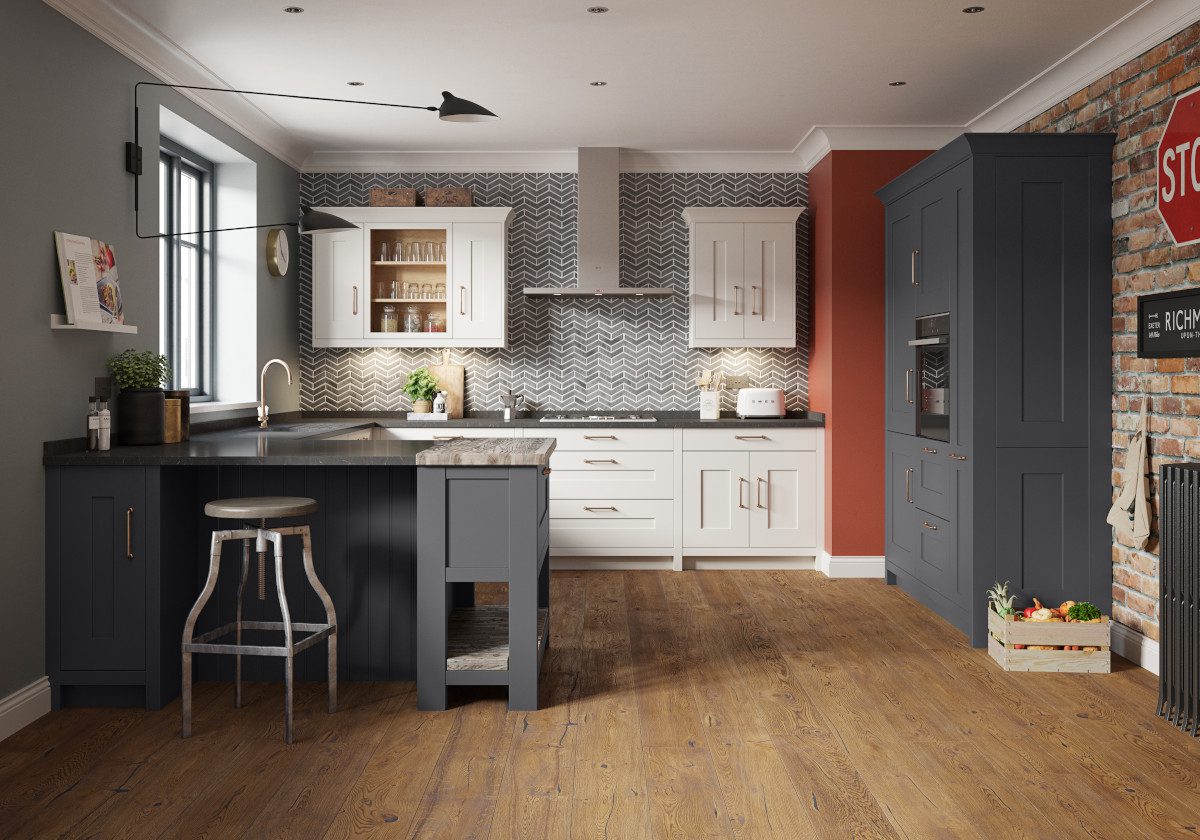Sustainable Kitchens From Next125!
Sustainability is central to the philosophy of our next125 kitchen range, enhanced by the belief in design in harmony with nature. The new front in reclaimed oak veneer is created from old barns, roof frameworks and floors which means at least part of your kitchen is centuries old! With knotholes and traces of use, each piece is unique. It is a concrete drive towards sustainable kitchens.

Why Invest In Sustainable Kitchens?
Combined here with reclaimed oak is the new colour indigo blue, shown above in a matt glass finish (also available in high gloss). The understated elegance of this combination gives each individual kitchen immense personality and indeed some history.

What makes a kitchen sustainable?
A sustainable kitchen incorporates various elements to minimise its environmental impact and promote long-term ecological balance. Here are key factors that contribute to a sustainable kitchen:
- Energy Efficiency: Utilising energy-efficient appliances, such as ENERGY STAR-rated refrigerators, stoves, and dishwashers, reduces energy consumption and lowers utility bills. Additionally, using LED lighting and optimising natural light sources can further enhance energy efficiency.
- Water Conservation: Installing water-saving fixtures like low-flow faucets and aerators, as well as water-efficient dishwashers and washing machines, helps reduce water usage. Collecting rainwater for irrigation and using greywater systems for non-potable water needs are also sustainable practices.
- Sustainable Materials: Choosing eco-friendly materials for countertops, cabinetry, and flooring, such as reclaimed wood, bamboo, recycled glass, or recycled metal, reduces environmental impact. Opting for FSC-certified wood ensures responsible forestry practices.
- Waste Reduction: Implementing a composting system for food waste and using reusable or compostable kitchenware, such as glass containers and bamboo utensils, minimises landfill waste. Proper recycling of materials like glass, plastic, and metal further reduces waste.
- Local and Organic Ingredients: Supporting local farmers and choosing organic produce reduces carbon emissions associated with transportation and minimises exposure to pesticides and chemicals. Growing herbs and vegetables in a kitchen garden or on a windowsill promotes sustainability and freshness.
- Efficient Storage and Organisation: Maximising storage space and keeping kitchen essentials organised reduces the need for excess items and prevents food waste due to spoilage. Utilising reusable containers for food storage helps maintain freshness and eliminates single-use packaging.
- Renewable Energy Sources: Installing solar panels or utilising other renewable energy sources to power kitchen appliances and lighting further reduces reliance on fossil fuels and lowers carbon emissions.
- Sustainable Cooking Practices: Opting for energy-efficient cooking methods like induction cooktops (bora hob) or pressure cookers conserves energy and reduces cooking time. Using lids while cooking, choosing appropriate pan sizes, and avoiding preheating the oven unnecessarily also contribute to sustainability.
By incorporating these elements, a kitchen can become a more sustainable and environmentally friendly space, supporting both personal health and the health of the planet.






